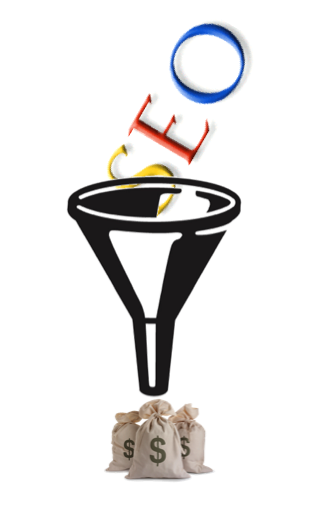
Should search engine optimization professionals be more involved in post-click marketing? Yes.
SEO shouldn’t end with the click. Getting the click is half the battle. What happens after that click is just as important. Post click marketing has taken off as more and more realize the need to optimize pages and conversion paths.
SEO should be leading the charge, not taking a back seat.
Post Click SEO
Keyword targeting adjustments are the first way in which SEO can influence post click marketing. What keywords are bringing users to the page and which of those keywords is performing best from a conversion perspective?
Decisions can be made to alter the keyword targeting of the page to optimize for the better performing keyword(s). Traffic may go down but the effective yield of that traffic may go up based on the higher conversion rate.
This process might also help identify areas for new content that better meet the needs of those arriving on poorly performing keywords.
Meta descriptions and titles are extremely valuable from a post click perspective because they can set expectations and even include a call to action. Optimizing solely for the keyword or keyword phrases in the meta description might not a) encourage clicks and b) may drive unqualified clicks.
Remember, search engine marketers are constantly testing new ad copy to increase click through rates and conversion. Search engine optimizers should do the same, using the larger canvass of meta description.
The meta description can even be used for promotional purposes. Changing the meta description on a product page to include an offer of free shipping will likely increase the click yield and, if the page matches their expectation, will continue to convert effectively.
On-site optimization in the form of keyword density, headers and even bold text can all have an impact on conversion. On-site SEO is about making the page easier to understand. While the initial audience for this optimization is a search engine, those same changes help everyday readers.
A highly descriptive header will help tell both the search engine and the reader what that page is about. H2s and H3s can help further explain the topic of that page. Again, both search engines and readers benefit.
Keyword density also increases the readability of a page. Here’s an example.
The procedure was a success and fully solved the patient’s condition.
This type of sentence might appear near the end of a descriptive paragraph. The writer probably referenced the procedure and condition beforehand and believes that the reader will fill in the blanks, turn generalizations into specifics and make the mental connections needed to gain comprehension. Search engines will do none of these things.
Instead, what if the sentence read as follows.
The stomach stapling procedure was a success and fully solved the patient’s obesity condition.
Changing generalizations to specifics and filling in the mental connections we make ensure that search engines and users immediately understand the content upon scanning the page. And people are scanning pages more than ever.
Don’t make your users do the work.
Post-click marketing and SEO
Companies that seek to maximize clicks in isolation and conversion in isolation will see results. But those results will be less than what could have been obtained. Don’t be fooled by the false positive of this silo mentality.
Search engine optimization and post-click marketing should work in tandem to get the most out of every click.
The Next Post: Product (Re)Placement
The Previous Post: The End of Rick Rolling?

Comments Down Here
// I Accept Wit, Insight, Disagreement, and American Express.
Sorry, comments for this entry are closed at this time.
You can follow any responses to this entry via its RSS comments feed.